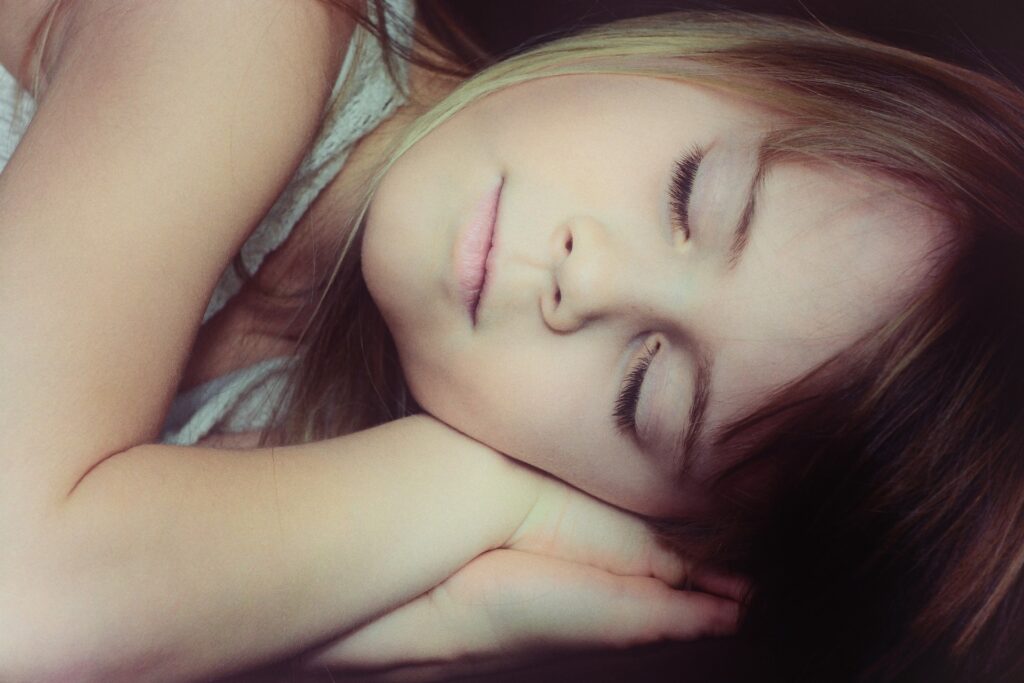Attention-Deficit Hyperactivity Disorder is a common disorder that affects both children and adults. Individuals with ADHD exhibit a variety of symptoms, including impulsivity, restlessness, difficulty concentrating, problems in school, and challenges with attention.(1) Many parents of children with ADHD have noticed another issue that tends to go along with the disorder: sleep concerns.
Difficulty falling and staying asleep, as well as getting enough rest, are all familiar problems even for parents of children who do not have ADHD. In fact, it’s typical for any tired child to have behaviors that look a lot like ADHD. Unlike adults, children actually tend to become wired and hyper when they haven’t had enough sleep.(1) This can make it difficult to know if a child’s apparent ADHD symptoms are actually an attention disorder, or a simple sign of not getting enough quality sleep. This is an important distinction to make, because failing to identify sleep problems as the cause of behavior problems could lead to the misdiagnosis of ADHD.(1)
For children and adults with ADHD, there remain clear connections between the condition and sleep problems. Let’s take a closer look at the relationship between sleep and ADHD:
Restless Leg Syndrome is More Common with ADHD
Several research studies have shown that children with ADHD are more likely to experience restless leg syndrome, a condition that causes sensations in the legs that makes sufferers want to move their legs frequently.(2) Restless leg syndrome can make it difficult to lie still or get comfortable when sleeping. Some studies suggest as many as a quarter of children with ADHD could also have restless leg syndrome, negatively impacting sleep.(2)
Other Concerns Might Impair Sleep
Aside from restless leg syndrome, children with ADHD also seem to experience night terrors and bed wetting at higher rates than kids without ADHD.(2) It’s also thought that children with attention-deficit hyperactivity disorder might spend less time in the REM cycle of sleep.(2) REM sleep is the deep, restorative sleep that leaves you feeling rested.(2) The behavior problems associated with ADHD can also affect a parent’s ability to establish a consistent bedtime routine.(1, 2)
It’s important to remember that, just like adults, children with or without ADHD can also experience problems that can negatively affect sleep, including allergies, snoring, and even sleep apnea.(2) Enlarged tonsils or extreme obesity can affect a child’s likelihood of having sleep apnea.(2) If your child is snoring or experiencing problems falling or staying asleep, it’s important to consult your physician. Treating sleep problems will lead to better physical health and help keep ADHD symptoms from getting worse.
Medications for ADHD Can Impact Sleep
It’s also important to pay close attention to any side effects that may result from a prescription medication that is given to your child for ADHD. While these medications are a valid form of treatment, there are some reports of medication, especially medication given at bedtime, causing sleep issues that could worsen symptoms.(2) Talk with your doctor about any concerns that you have about your child’s dosing schedule or any reactions from medication.
NeuroBehavioral Associates Can Evaluate ADHD
NeuroBehavioral Associates provides comprehensive neuropsychological assessments to evaluate learning, neurodevelopmental, and cognitive conditions or concerns, including attention-deficit hyperactivity disorder. We also have a strong referral network and a variety of resources to guide individuals and families.
NeuroBehavioral Associates remains open during the COVID-19 pandemic. We are providing in-office, low-contact assessments, as well as telehealth services. Call 410-772-7155 or email us today to schedule an appointment.
References:
- ADHD and Sleep. (2020, December 11). Retrieved December 16, 2020, from https://www.sleepfoundation.org/mental-health/adhd-and-sleep
- Peters, B., MD. (2020, March 10). What’s the Relationship Between ADHD and Sleep? Retrieved December 16, 2020, from https://www.verywellhealth.com/the-relationship-between-adhd-and-sleep-3014667

